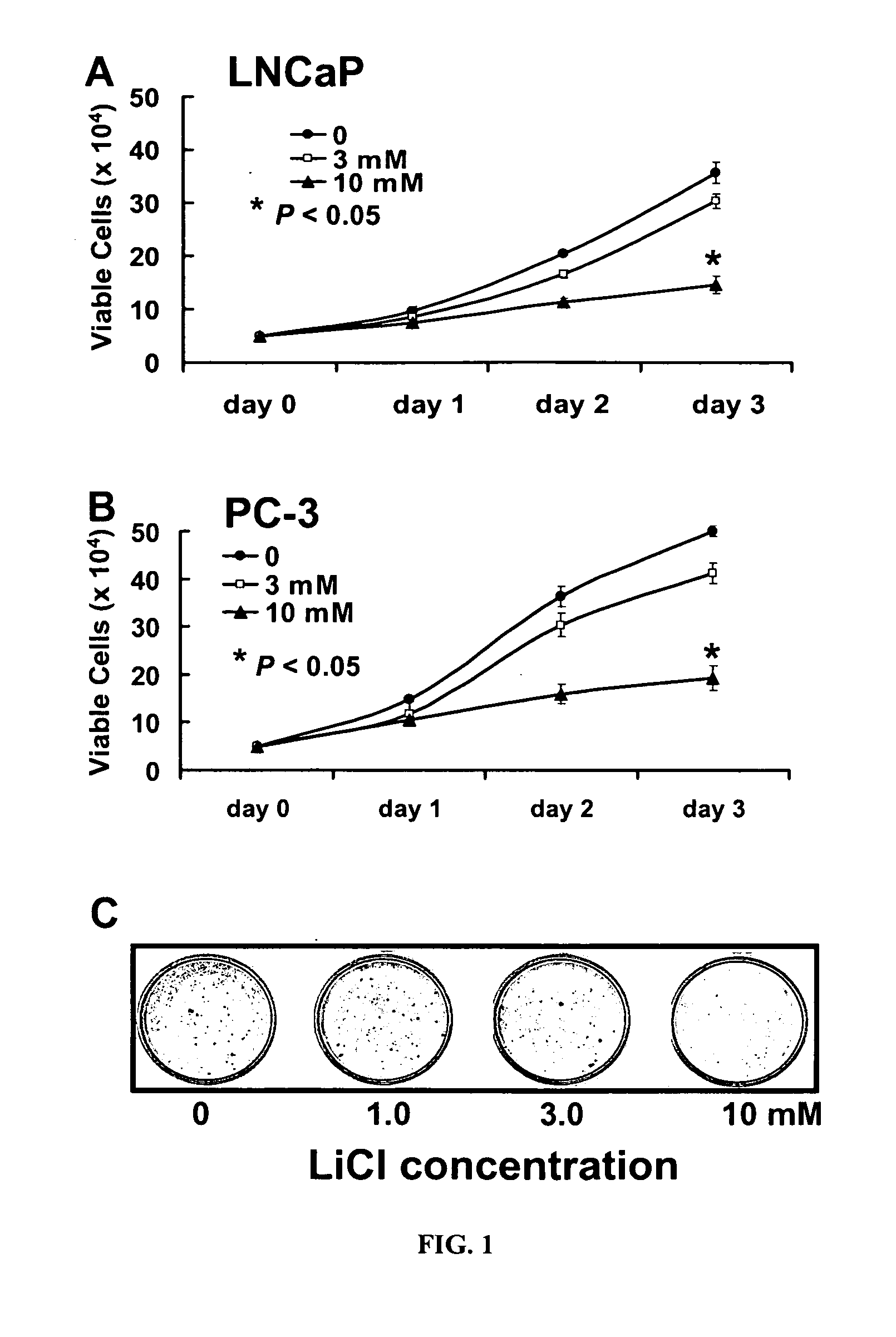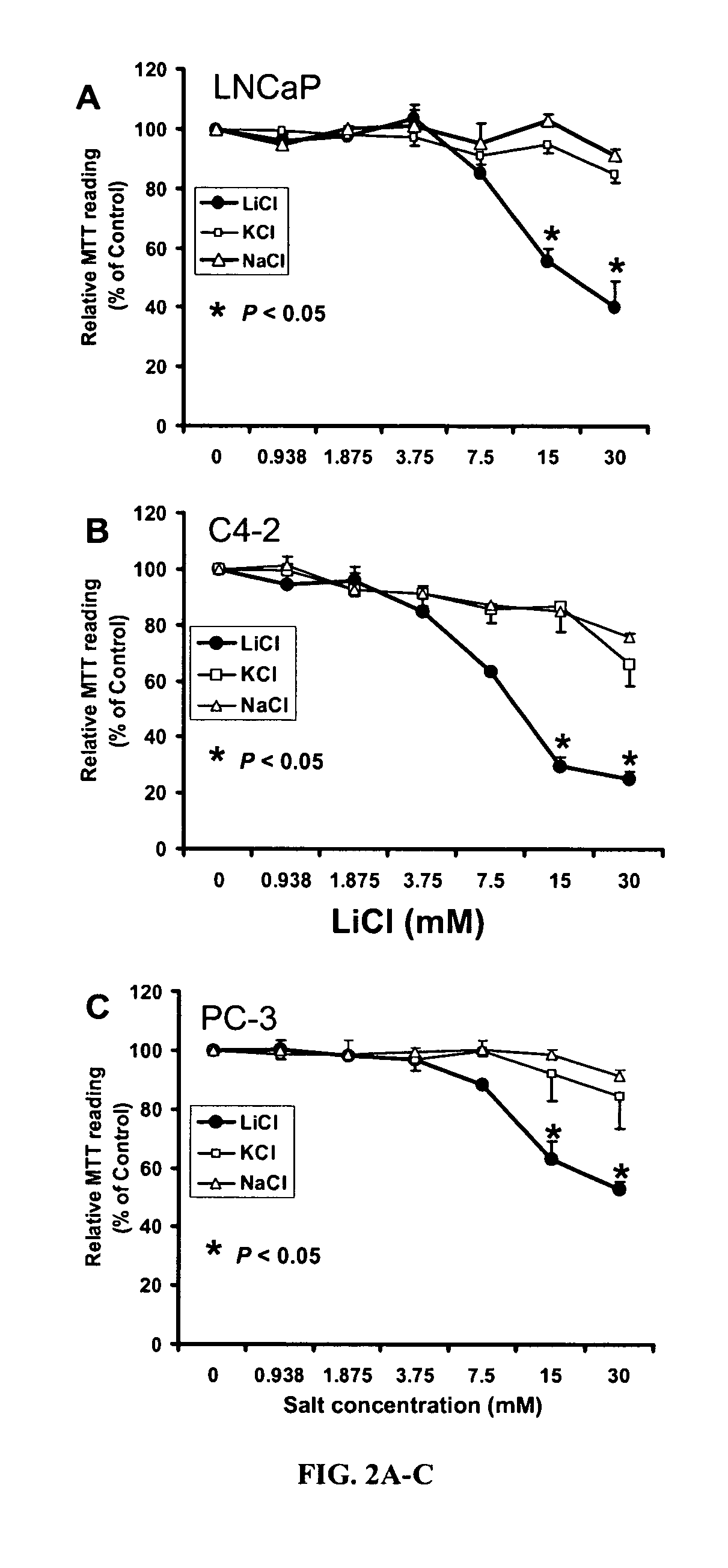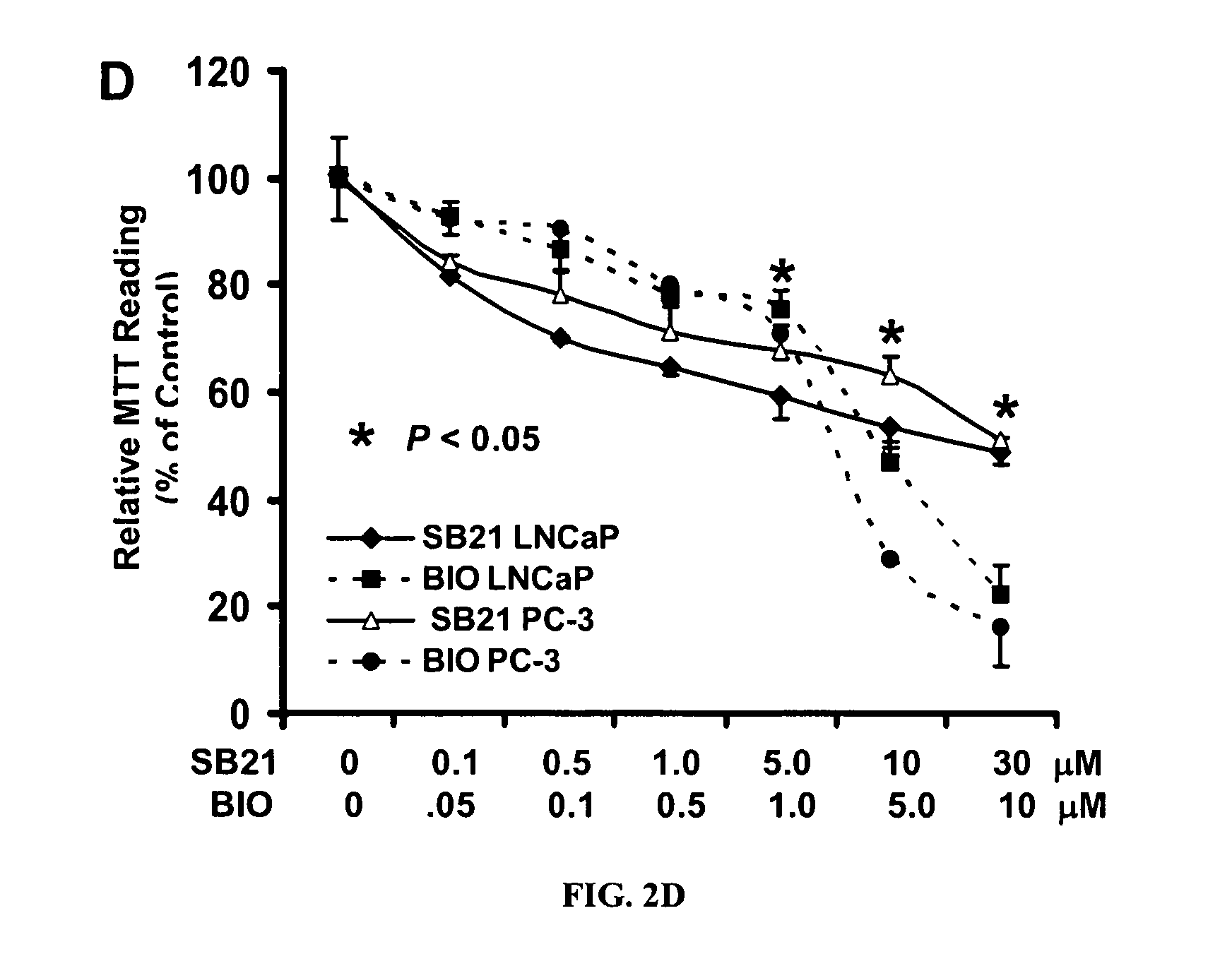Prostate cancer treatment with glycogen synthase kinase-3beta inhibitors
a glycogen synthase and prostate cancer technology, applied in the field of prostate cancer treatment with glycogen synthase 3beta inhibitors, to achieve the effects of enhancing the chemo sensitivity of leukemia cells, inhibiting pain, and reducing pain for bone metastatic cancer patients
- Summary
- Abstract
- Description
- Claims
- Application Information
AI Technical Summary
Benefits of technology
Problems solved by technology
Method used
Image
Examples
example 1
GSK-3β Inhibition of Cell Growth In Vitro
[0072] This example investigated whether GSK-3β inhibitors could suppress prostate cancer cell growth using three common cell lines (AR-positive, androgen-responsive LNCaP cells, androgen insensitive C4-2 cells, and AR-null PC-3 cells). Cell growth was assessed using three different methods: trypan blue-based counting of viable cells, MTT, and colony formation. Four structurally-unrelated GSK-3β inhibitors, LiCl, SB216763, and SB415286, as well as indirubin analog BIO, were used to ensure the specificity of GSK-3β inhibition. The specificities for GSK-3β inhibition were established previously (Coehn 2004, Phiel 2001, Sato 2004). The inhibitors or vehicle were added once into the cell culture medium during the experiments.
[0073] First, the effect of LiCl on cell growth was investigated. AR-positive, androgen-dependent LNCaP cells or AR-null PC-3 cells were seeded in a 12-well plate overnight and then treated with or without LiCl in different...
example 2
GSK-3β Inhibitors Disrupt S-Phase Progression
[0077] Suppression of cell growth may result from cell cycle disturbance. Previous reports showed that GSK-3β inhibitors induce cell cycle arrest in some cell lines (Smits 1999, Damiens 2001). To determine if GSK-3β inhibitors interfere with cell cycle progression in prostate cancer cells, a cell cycle analysis in LNCaP, PC-3, and C4-2 cells after LiCl treatment was performed.
[0078] LNCaP cells were first serum-starved for 24 hours, and were then released by returning them to full culture media in the presence or absence of LiCl for up to 24 hours. Cell cycle distribution was analyzed by flow cytometry (“FCM”). As shown in FIG. 3A, after serum starvation most of the cells were arrested in G1-phase. When serum was added back in the culture (the control), cells re-entered into cell cycle. However, the portion of S-phase cells was dramatically increased in LiCl-treated population (FIG. 3A, right panel). As shown in FIG. 3B, when analyzing ...
example 3
GSK-3β Inhibitors Down-Regulate DNA Replication-Related Genes
[0082] For mammalian cells, DNA replication or synthesis occurs during S-phase. Successful completion of DNA replication and progression through S-phase requires coordinated action of numerous factors (reviewed in Takeda 2005). In brief, a multi-protein complex called pre-replication complex (“pre-RC”) forms at replication origins on chromatin DNA by origin recognition complex (“ORC”) and initiation factors cdc6 and Cdt1 before DNA replication process starts. During DNA replication, the pre-RC recruits a second set of replication factors, including minichromosome maintenance (“MCM”) proteins. Recent reports showed that cdc6 is critical in loading MCM proteins during DNA replication and has a dual role in G1-S and G2-M transitions (Takeda 2005, Cook 2002). Levels of cdc6 protein are selectively higher in proliferating but not quiescent mammalian cells and its expression is regulated via an E2 factor (“E2F”)-dependent trans...
PUM
| Property | Measurement | Unit |
|---|---|---|
| Electrical conductance | aaaaa | aaaaa |
| Cell angle | aaaaa | aaaaa |
| Phase | aaaaa | aaaaa |
Abstract
Description
Claims
Application Information
 Login to View More
Login to View More - R&D
- Intellectual Property
- Life Sciences
- Materials
- Tech Scout
- Unparalleled Data Quality
- Higher Quality Content
- 60% Fewer Hallucinations
Browse by: Latest US Patents, China's latest patents, Technical Efficacy Thesaurus, Application Domain, Technology Topic, Popular Technical Reports.
© 2025 PatSnap. All rights reserved.Legal|Privacy policy|Modern Slavery Act Transparency Statement|Sitemap|About US| Contact US: help@patsnap.com



